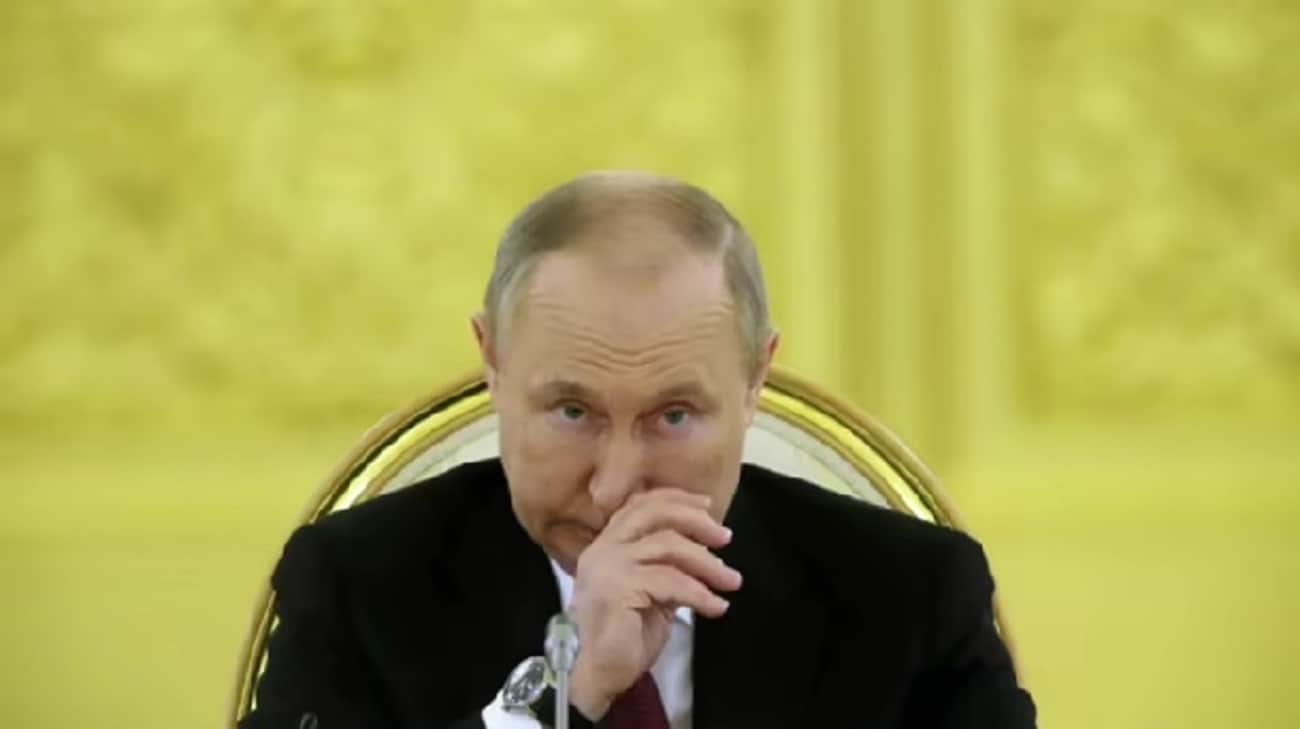Vladimir Putin. Photo: Getty Images
Experts at the Institute for the Study of War (ISW) have noted that the Kremlin is conducting a sophisticated information campaign to justify the fall in Russian leader Vladimir Putin’s rating due to the Ukrainian operation in Russia’s Kursk Oblast.
Source: ISW
Details: American analysts pointed out that Russian state sociological agencies have acknowledged some growth in Russians’ dissatisfaction with Putin and the Russian government in the wake of Ukraine’s incursion into Kursk Oblast.
Advertisement:
The Public Opinion Foundation, a Russian state-owned sociological institution, published a poll on 30 August conducted on 25 August that showed 28% of respondents expressed outrage or dissatisfaction with the actions of the Russian authorities over the past month.
Experts said that this is up from 25% and 18% in polls conducted by the foundation on 11 August and 28 July respectively.
Respondents to the survey have not expressed such a high level of dissatisfaction since a poll conducted in November 2022, after the first month of unpopular partial mobilisation in Russia.
The Russian Public Opinion Research Centre, another state-run agency, said Putin’s approval rating fell by 3.5% to 73.6% between 12 and 18 August. ISW notes that this is a record drop in Putin’s rating, even among Kremlin sociologists, since the start of the full-scale invasion in February 2022.
The Russian Public Opinion Research Centre released its latest poll on Putin’s approval rating on 30 August, showing an additional 1.2% drop to 72.4% between 19 and 25 August.
Quote: “These polls from Russian state-owned polling agencies do not suggest particularly pronounced discontent nor are they reliable reflections of the actual sentiments in Russian society.
The polls do suggest, however, that the Kremlin assesses that it must recognise that societal discontent has risen since the start of Ukraine’s incursion into Kursk Oblast.”
More details: It was noted in the review that the Kremlin likely hoped that limited acknowledgement of public discontent would protect it from accusations of ignoring Russian public concern over the Ukrainian invasion.
Quote: “The Kremlin appears to have launched an intricate messaging campaign aimed at justifying to its domestic audience why Russia is prioritising the maintenance of offensive operations in eastern Ukraine over immediately expelling Ukrainian forces from Kursk Oblast, and limited acknowledgments of discontent may be a part of this campaign.”
To quote the ISW’s Key Takeaways on 30 August:
- European Union (EU) member state officials continue to express divergent views about Ukraine’s ability to use European-provided weapons to strike military targets in Russia.
- Russian sources claimed that Ukrainian and Russian forces made marginal gains in Kursk Oblast on 30 August.
- Russian state-owned polling agencies are recognising limited upticks in Russian domestic discontent towards Russian leader Vladimir Putin and Russian authorities amid the Ukrainian incursion into Kursk Oblast.
- Venezuela extradited Colombian citizens who fought as members of the Ukrainian military to Russia, demonstrating growing Russian-Venezuelan cooperation and Venezuelan support for Russia’s war.
- Hungary and Russia continue to deepen their bilateral cooperation.
- Ukrainian President Volodymyr Zelenskyy dismissed Lieutenant General Mykola Oleshchuk as Ukrainian Air Force Commander on 30 August.
- Russian forces recently advanced near Svatove, Pokrovsk, and the city of Donetsk.
- French outlet Le Monde reported on 30 August 30 that about 100 mercenaries from the Bears private military company from Russia departed Burkina Faso to join Russian forces fighting in Kursk Oblast.
Support UP or become our patron!

